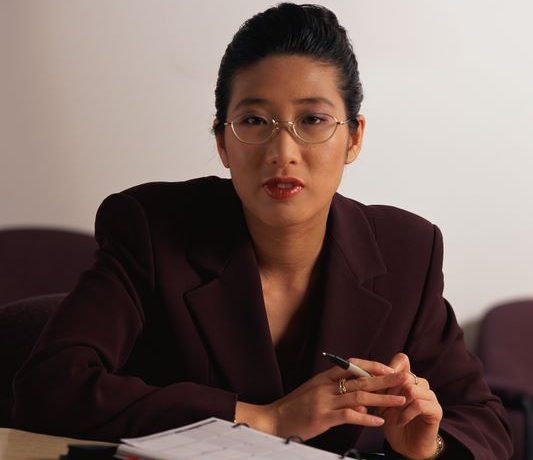I am a Member of the Public

Find information
I received a bylaw notice
The Bylaw Notice will include information about your next steps and options.
Each local government has its own process. You can often find detailed information on the website of your local government.

Pay or dispute?
Option 1
Pay the Penalty

You can choose to pay the penalty. Information about how and where to pay the penalty will be included on the Bylaw Notice. This information may also be available on the website of your local government.
In general, for penalties paid within 14 days of receiving a Bylaw Notice, a discounted penalty applies. For penalties paid after 14 days, the full amount of the fine applies. Some local governments may have different time frames for discounted penalties, or may not apply a discounted penalty. A surcharge may also apply to increase the amount owing if it is not paid within a specific time frame.
Option 2
Dispute the Bylaw Notice

If you wish to dispute the Bylaw Notice, start by submitting a dispute request to the local government. Refer to the instructions on how to dispute a Bylaw Notice found on the back of the Bylaw Notice.
Delivery instructions are also provided on the back of the Bylaw Notice. Some local governments have online request forms.
Continue reading this page for more information about the dispute process.
For a visual overview of the steps involved in disputing a bylaw notice, please refer to our Bylaw Notice Flow Chart.
Screening
After your request has been delivered to a local government, a screening officer will review the Bylaw Notice and evidence provided by the Bylaw Officer who issued the Bylaw Notice. The screening officer may then:
- Cancel the Bylaw Notice;
- Contact you to discuss a compliance agreement; or
- Confirm the Bylaw Notice and refer the matter to an adjudicator for hearing.
Some local governments do not have a screening officer. In those cases, the screening step will not happen, and you will instead proceed to an adjudication hearing.
Compliance agreements
In some situations, a screening officer may propose a voluntary compliance agreement to resolve the dispute. Under a compliance agreement, you can agree to pay a reduced penalty in exchange for observing certain terms or conditions.
By entering into a compliance agreement, you accept liability for the offence in the Bylaw Notice. If you do not fulfil the terms of the compliance agreement, the screening officer can cancel the agreement.
Adjudication hearings
If the screening officer refers your matter to an adjudicator you will be contacted by a local government officer to inform you of the date and time for the hearing. You can choose your preferred method of participation: in person, through an agent, by phone, in writing, or remote (i.e., Zoom, Microsoft Teams or other video conferencing platform). If your choice to participate by video conference, audio conference, or phone increases the cost of the hearing, you may be required to pay the additional cost to the local government.
What is an adjudication hearing?
In an adjudication hearing, you and the local government present evidence at a hearing before an adjudicator who is independent from the local government.
The adjudicator decides whether or not the bylaw offence alleged in the Bylaw Notice occurred.
If the adjudicator decides the offence did occur, then the Bylaw Notice is upheld, and you must pay the penalty stated in the Bylaw Notice and a $25 fee. If the Bylaw Notice is cancelled, no penalty or fee is owing.

Preparing for the adjudication hearing
Each local government has its own bylaw adjudication process. Visit your local government website for information about the process, including what is required from you at what time. You may wish to contact local government staff, who may be able to assist you with the process.
As soon as possible after you have decided to dispute the Bylaw Notice you should begin to gather evidence in support of your case. In addition to having your evidence ready for the hearing date, the local government might require you to submit your evidence a few weeks in advance of the hearing. For information about whether you need to submit evidence in advance, refer to your local government website or staff.
Adjudicators have the authority to accept any evidence they consider to be credible, trustworthy, and relevant to the dispute, including the evidence of any person. They can accept evidence in any manner they consider appropriate, including orally, in writing, and electronically. Acceptable evidence might include, for example, documents or photographs.
In some cases, you may wish to have a witness testify at the hearing itself. The adjudicator will decide if the witness should be permitted to testify.. You may wish to obtain a written statement from the witness. However, even if the witness provides a written statement, they should be available to attend the hearing in case the adjudicator wants to receive their evidence orally.
Making a good presentation
The key to making an effective presentation to the adjudicator, whether it is in person, in writing, by telephone or videoconference, is to organize your oral and documentary evidence and present the information in a logical manner.
Your general approach should be:
- Present the important facts to the adjudicator in a clear and simple manner.
- Refer to your evidence in support your case.
- Have your witness(es) present and ready to testify, if applicable
- Provide copies of any law you wish to rely on
Evidence package
Most local governments will provide an evidence package which includes the local government’s documentary evidence that will be presented at the hearing. The package may contain statements, photographs or other evidence and materials related to the matter.
Virtual hearings
In a virtual hearing, some or all participants attend virtually, usually using a telephone, Microsoft Teams, Zoom or other video or teleconferencing software. If you are attending virtually, the local government will send you information about how to connect to the hearing.
What to expect during a bylaw adjudication hearing
At the adjudication hearing, evidence and arguments will be presented by you and the local government.
As adjudicators are independent decision-makers under the Local Government Bylaw Notice Enforcement Act, each adjudicator has authority to direct how to conduct hearings, including how evidence is to be submitted or and how the adjudicator will assess the evidence. What evidence may or may not be accepted is up to the adjudicator.
The amount of time for each adjudication may vary depending on the complexity of the dispute. Typically hearings are 30 minutes or less.
A dispute adjudication hearing must be open to the public. If you have chosen for the hearing to be in writing, the local government must make the written materials available to the public.
Adjudicator decision
The adjudicator will decide whether the offence did or did not occur, either orally at the end of the hearing or sometime after the hearing in a written decision. The adjudicator will determine if the bylaw offence occurred. If the adjudicator determines an offence occurred, you will need to pay the full amount of the Bylaw Notice, plus a $25 fee. If the adjudicator determines no bylaw offence occurred, the Bylaw Notice is cancelled and you will not have to pay the penalty or $25 fee.
If the disputant does not appear
The adjudicator will provide their written decision to the local government. You can contact your local government to request a copy of the written decision.
Once a decision is made
The adjudicator will provide their written decision to the local government. Local governments are responsible for delivering the written decision to the disputant immediately upon receipt.
Judicial review
An adjudicator’s decision is final and cannot be appealed.
You may have the option to file an application for judicial review with the Supreme Court of British Columbia. If you believe that the adjudicator’s decision was incorrect, unreasonable, or exceeded their jurisdiction, you may wish to seek legal advice about judicial review.
You can find more information on judicial reviews from the BC Judicial Review Self-Help Guide.
A judicial review application must be filed within 30 days after an adjudicator makes their determination.
Complaints about adjudicator conduct
Complaints to Local Governments or the Ministry of Attorney General about an adjudicator’s decision being wrong – in effect asking for an appeal – will not be considered.
If your complaint instead relates to an adjudicator’s behaviour at the hearing, you may submit a written complaint by email or by letter to the Tribunal and Agency Support Division of the Ministry of Attorney General (TASD).
Tribunal and Agency Support Division of the Ministry of Attorney General (TASD) mailing address:
Director of Bylaw Adjudication Program
Tribunal and Agency Support Division
PO Box 9222 Stn Prov Govt
Victoria BC V8W 9J1
Ministry of Attorney General
Email: LocalGovernmentBylawAdjudication@gov.bc.ca.
Your email or letter should include:
- Your name, mailing address, phone number and email address (if available)
- The name of the adjudicator
- The date of the hearing
- The city or district where the hearing occurred
- The Bylaw Notice number(s) for your case
- If the conduct happened outside a hearing, the place where it happened
- A description of the conduct that concerns you in as much detail as possible
You can expect to receive an initial response email acknowledging receipt of your complaint within 14 days. That email will include a timeline for a response to your complaint.
